10 Years of Renovation: How a Family Updated an Old House by Themselves
Owners of this cottage in Melbourne's suburbs—Peter and Helen, with their son Hudson and two dogs Jeffrey and Byron—have been gradually transforming their dream home for the past ten years, and they're doing quite well.
The house spans two floors and three levels, with the back wall replaced by panoramic glass overlooking a pool. Peter and Helen chose not to change the unconventional layout but instead made it a distinctive feature of their home.
On the first floor, there's a dining room, kitchen, bathroom, and guest room. On the second level of the first floor, there's a living room and the owners' bedroom. Hudson’s office and bedroom are located on the second level.
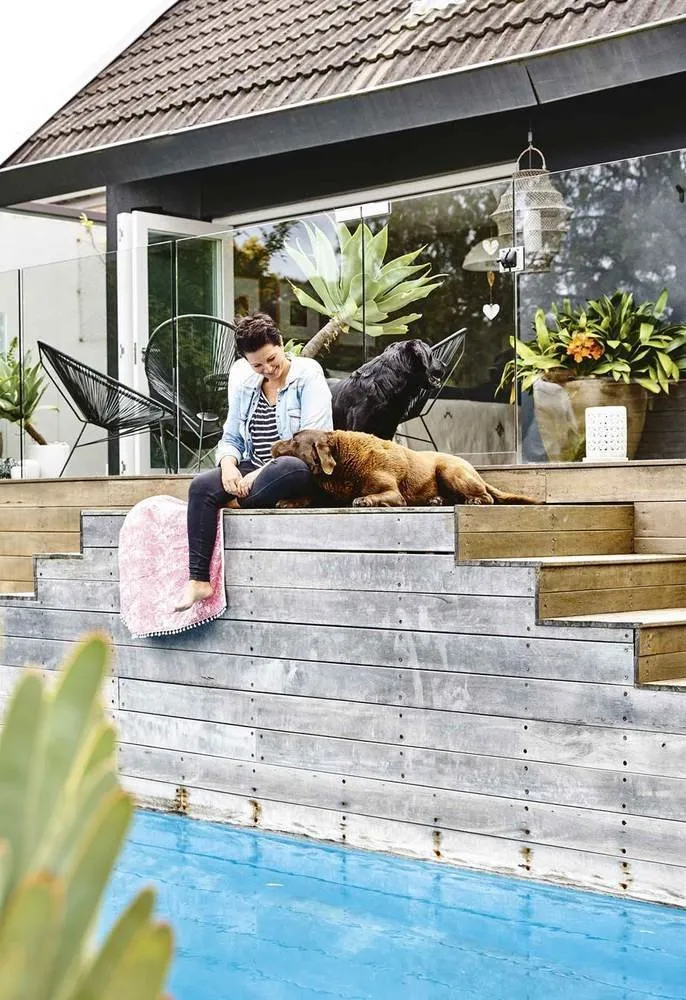
Peter and Helen run a family business: their company specializes in construction. The family is confident that their house is the best project they’ve ever worked on.
The idea of buying a new home came to the owners after a tiring school year. At that time, they lived in another area and had to drive 45 minutes each way just to take Hudson to school. It was, to say the least, exhausting.
After their vacation, Helen began searching for a new place and found exactly what she needed. When the future owners visited for a viewing, opinions were divided. The run-down facade and outdated interior made Peter want to get back in the car quickly, but Helen had a different vision.
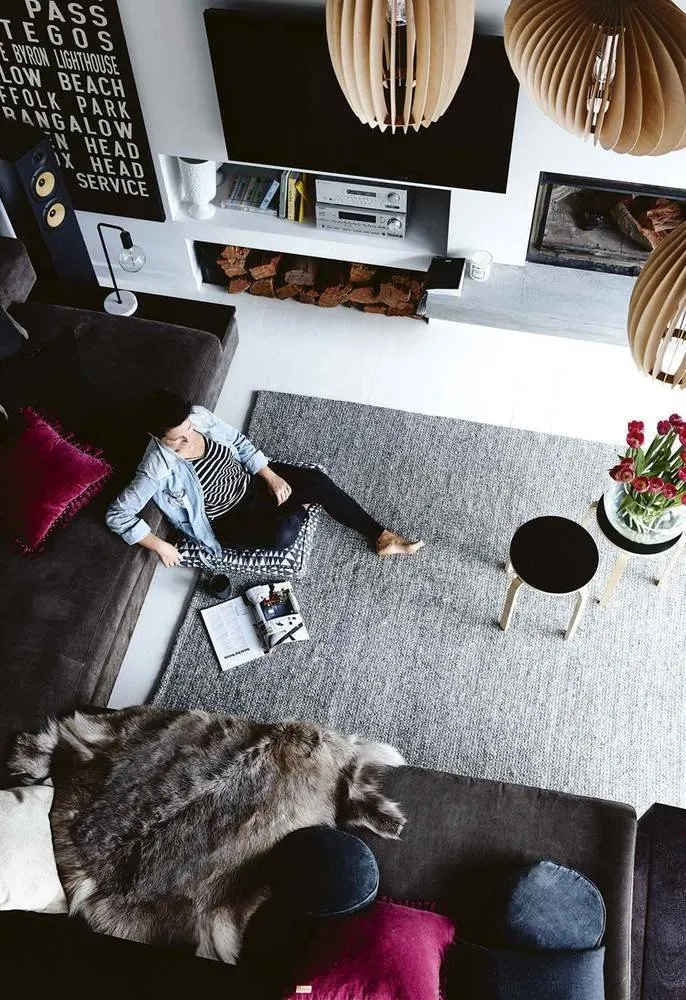 I grabbed his hand and said: "Don't you see what this could become?"
I grabbed his hand and said: "Don't you see what this could become?"Helen couldn’t take her eyes off the high cedar-panelled ceilings and the spacious interior. She convinced her husband to buy the house, and they moved in 30 days later.
During the renovation, the couple divided responsibilities: Peter handled the exterior and facade, while Helen focused on space zoning and interior design. For the next six months, the family lived in their old house, planning what needed to be done. Over the next ten years, they slowly transformed everything—after work, on weekends, and even during Christmas holidays.
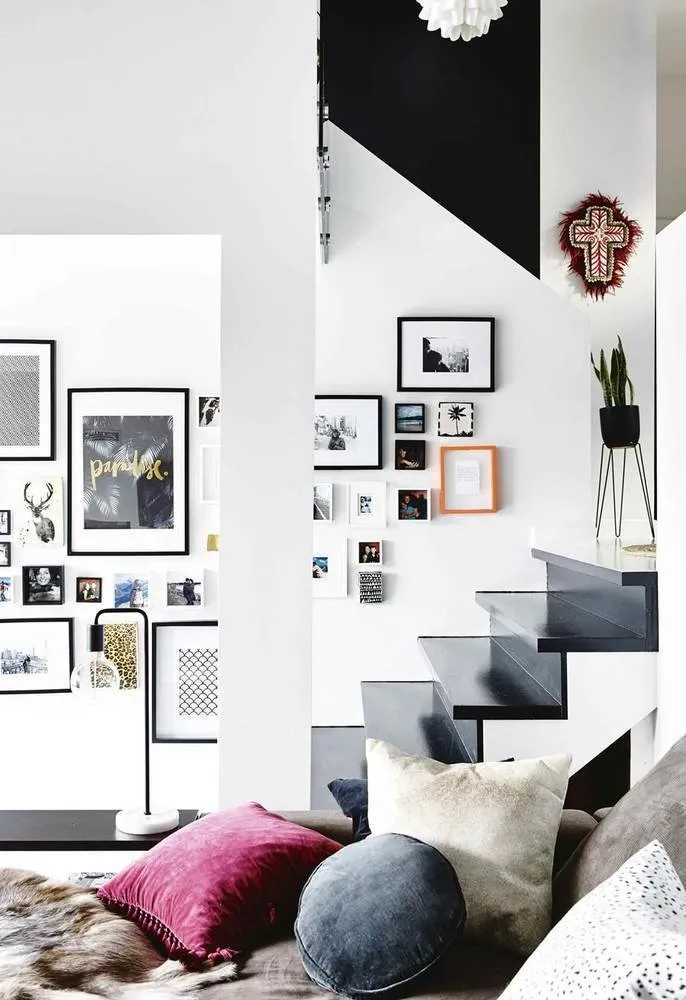
The interior features many decorative elements that contribute to the atmosphere. They decided to zone the spaces using color: white and black tones divide the space into vertical and horizontal lines.
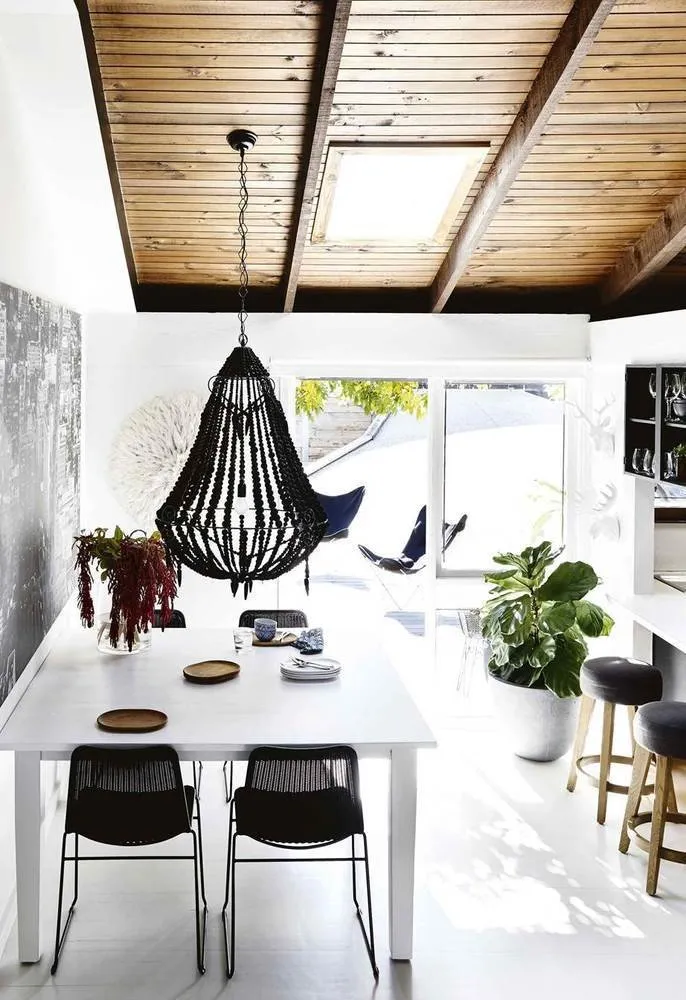
The kitchen stayed in its original form and is currently waiting for a redesign. The only change was that Helen painted the upper shelf and the lower part of the bar counter black to contrast with white, creating a sense of space and light. By the way, updating the kitchen remains a family topic of discussion.
The only thing we both definitely want is to make the kitchen bigger.
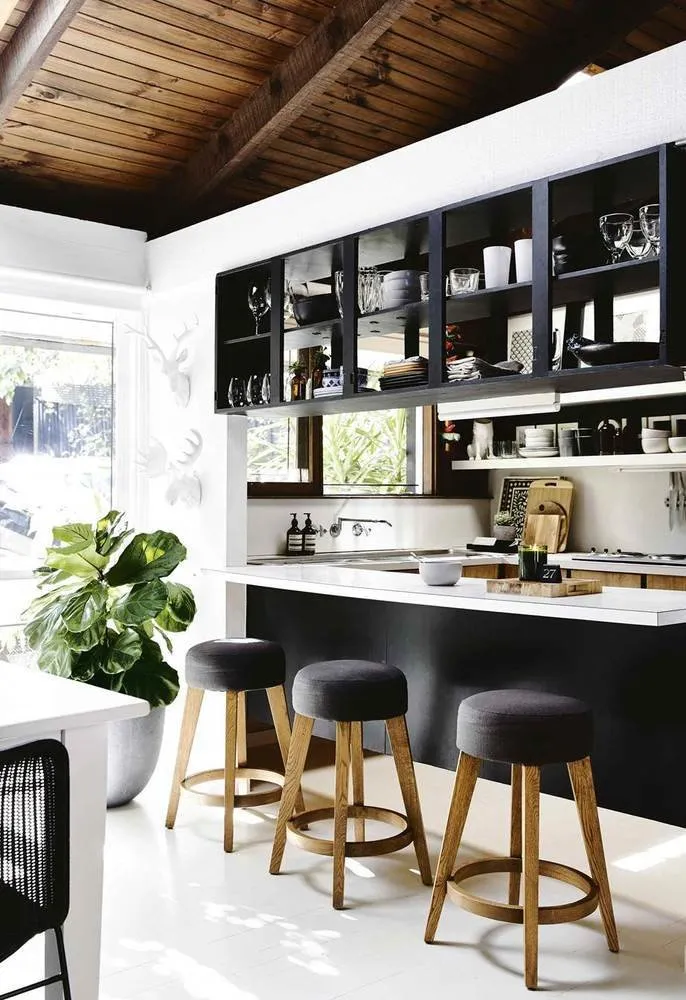 The bar counter serves as a work surface and a curtain hiding the dishwasher, microwave, and storage space.
The bar counter serves as a work surface and a curtain hiding the dishwasher, microwave, and storage space.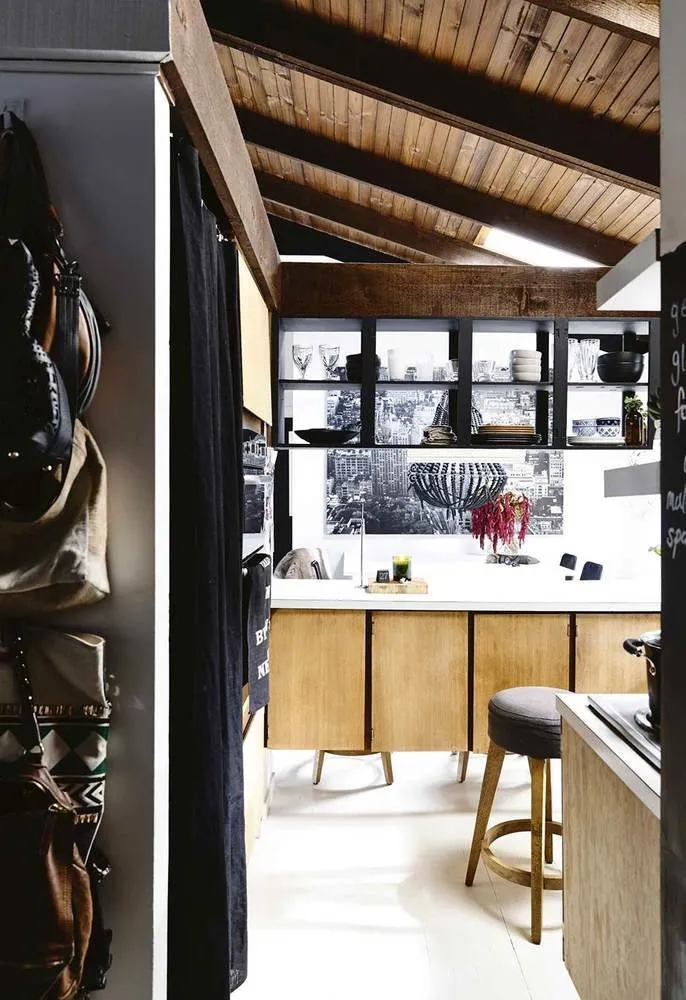
Thanks to the panoramic windows in the living room, there's plenty of natural light. One wall was made an accent feature and decorated with a collection of family photos and meaningful gifts (they even call it the 'love collection'). There's also a fireplace that brings the whole family together during cool evenings.
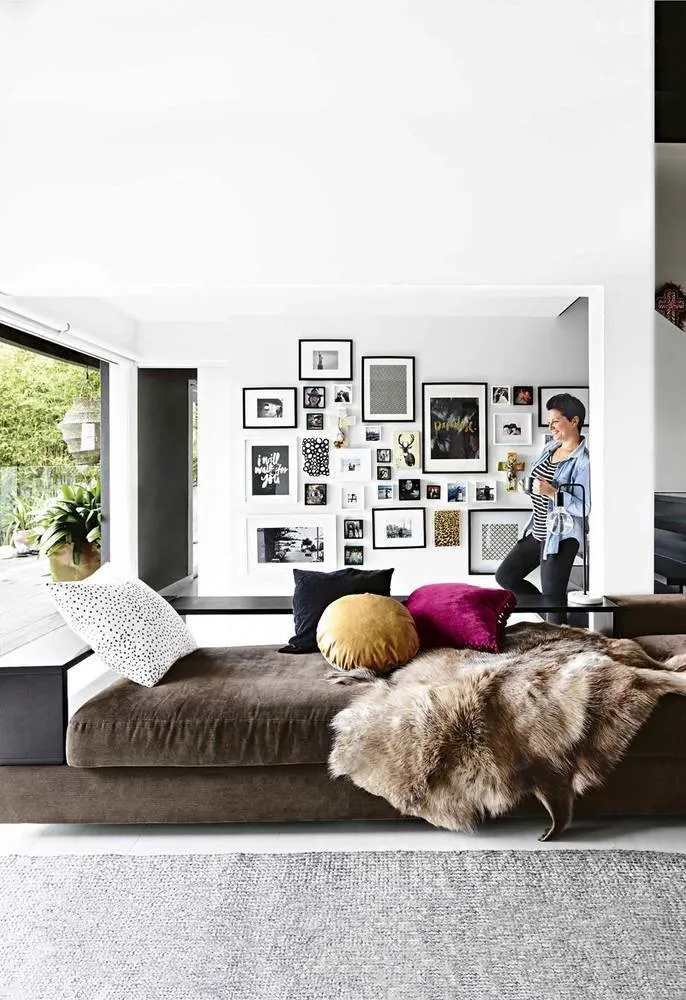
The bedroom maintains the same color palette: black and white tones are complemented with warm wood accents. The black walls help define the space, and dark shades on vertical surfaces don’t appear gloomy.
The paintings above the bed were drawn by our son when he was six years old.
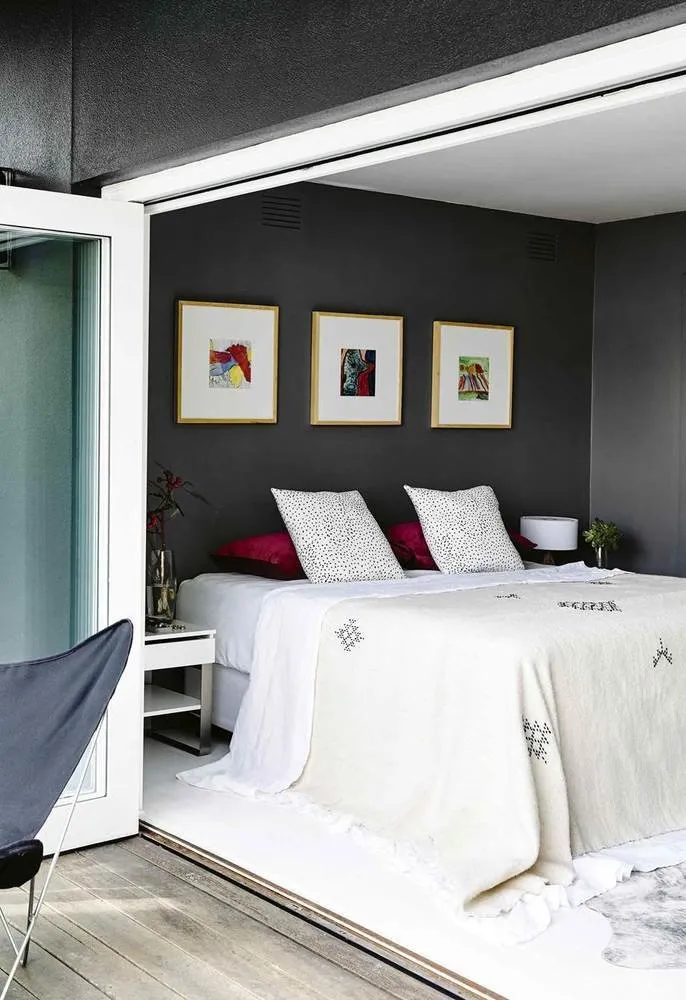
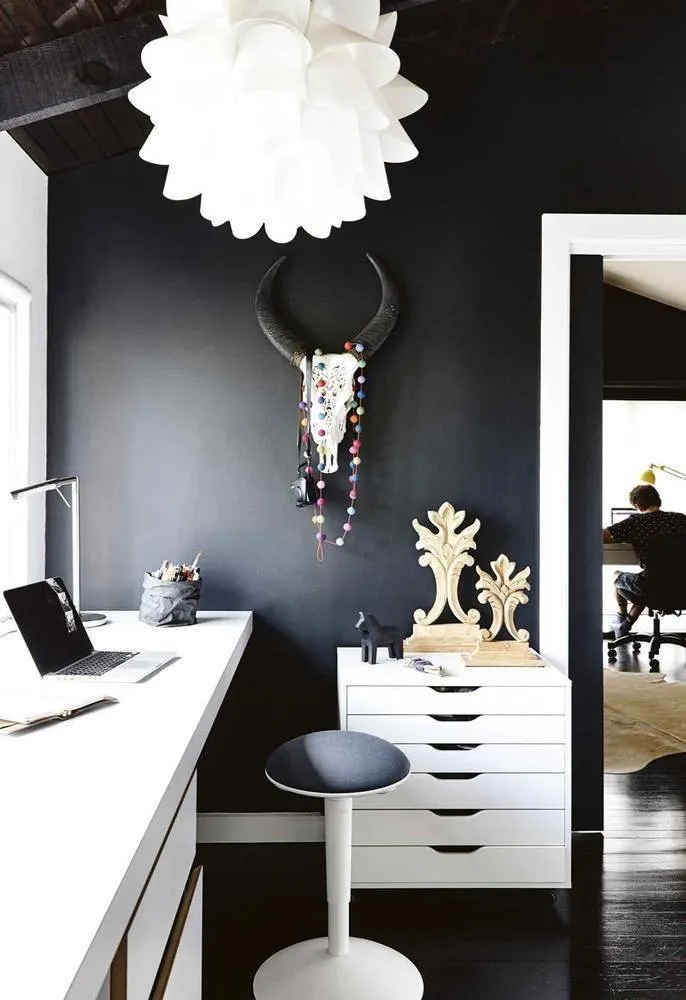
Hudson’s bedroom is furnished according to the interests and preferences of this 16-year-old teenager. Minimal furniture and décor, maximum air and open space.
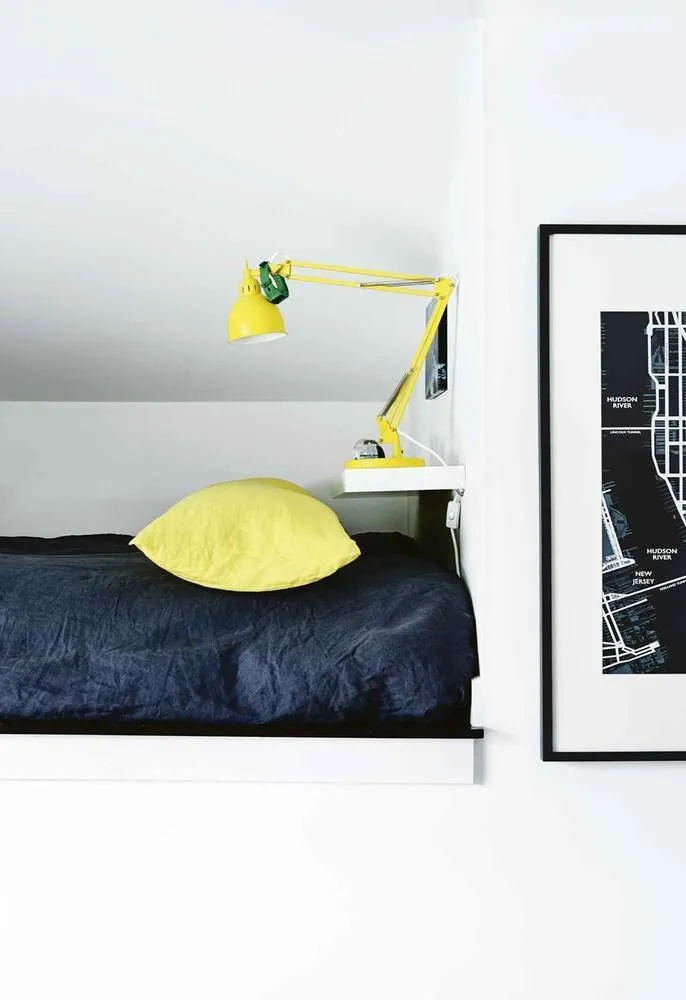
The bathroom, like the kitchen, remains untouched. White and black are the dominant colors here, with a green fern adding freshness to the interior.
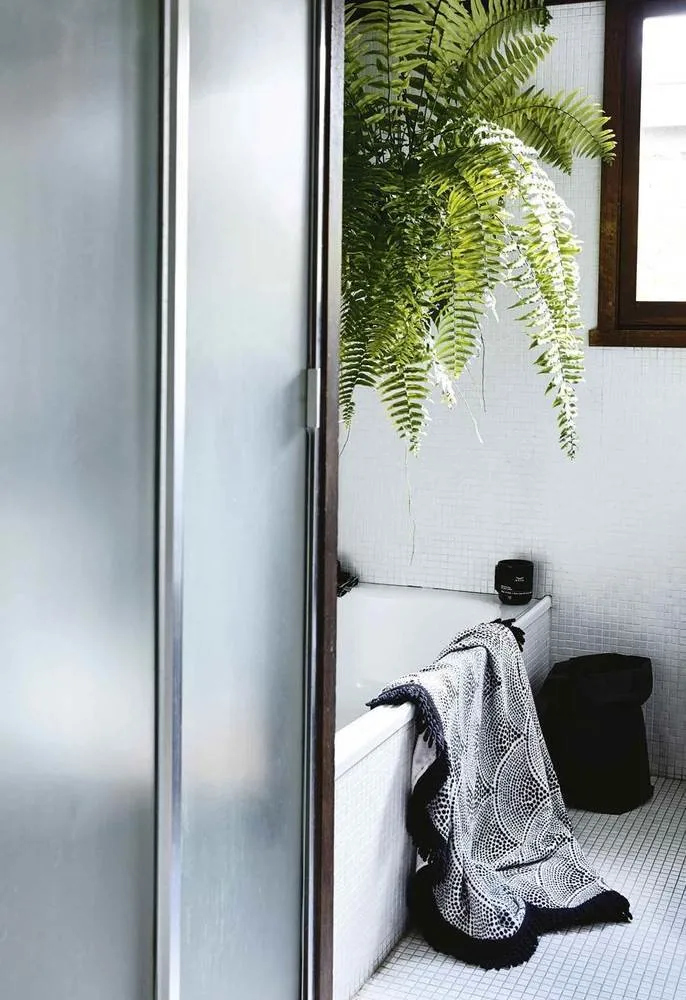
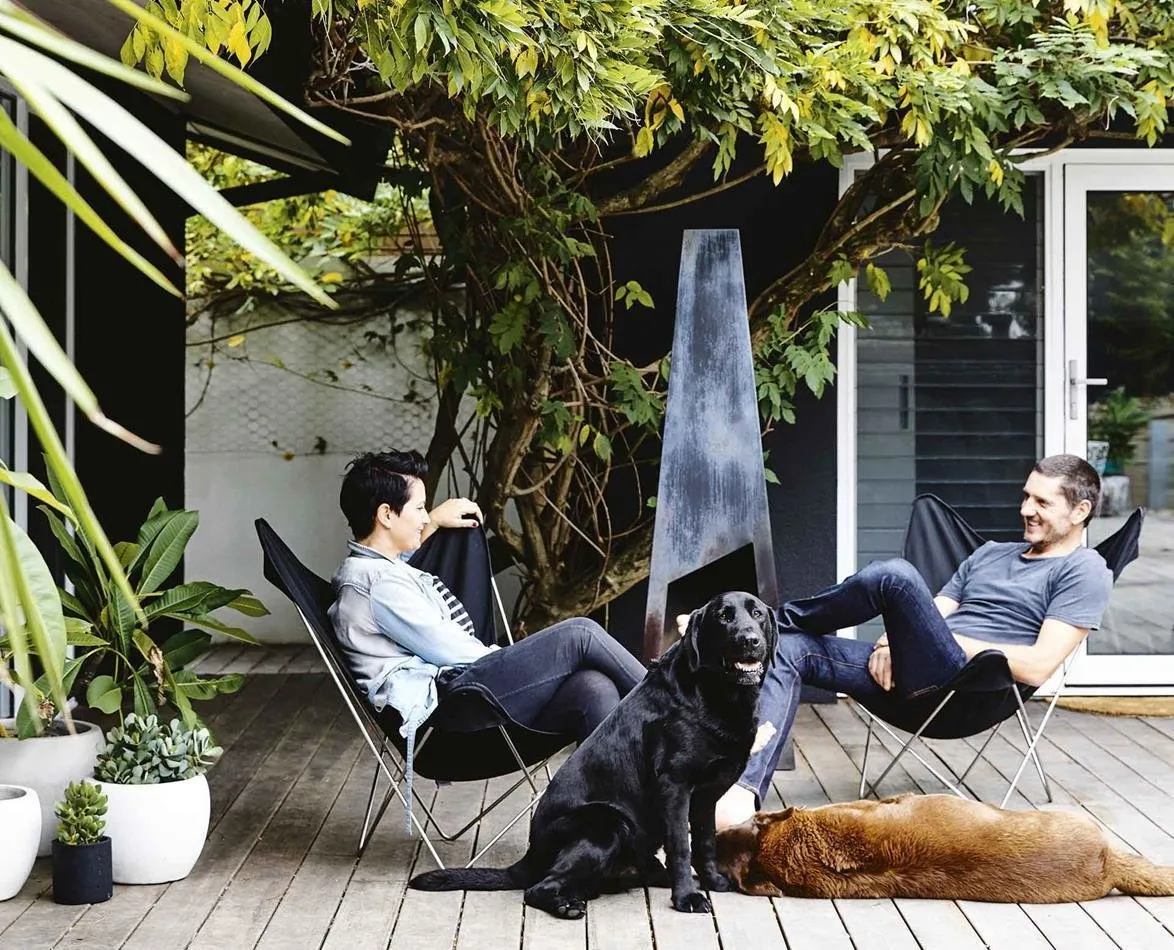
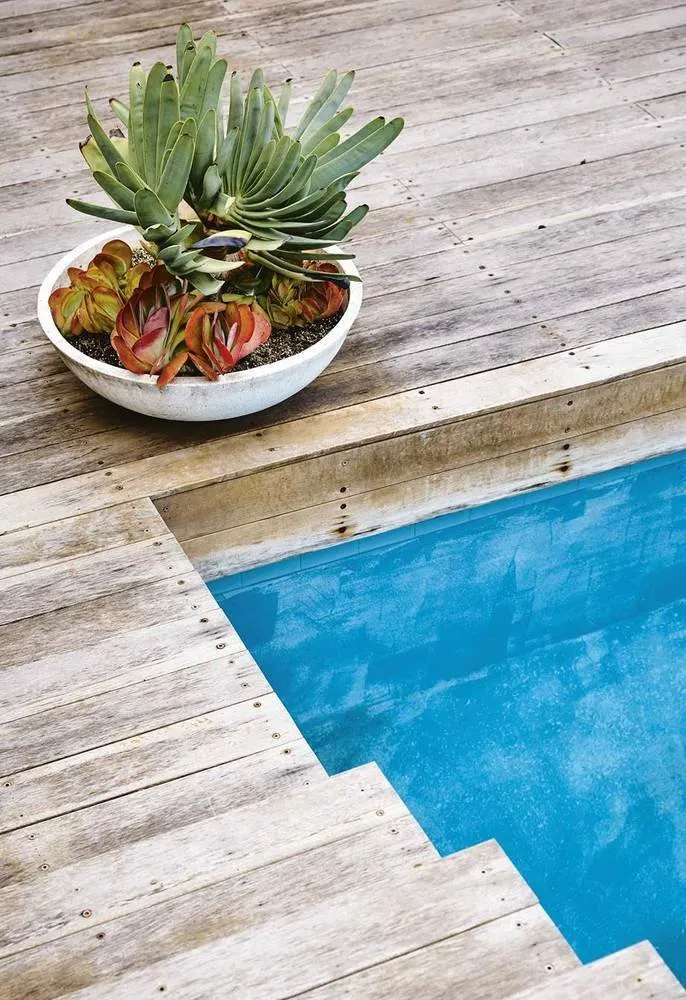
Need a renovation specialist?
Find verified professionals for any repair or construction job. Post your request and get offers from local experts.
You may also like
More articles:
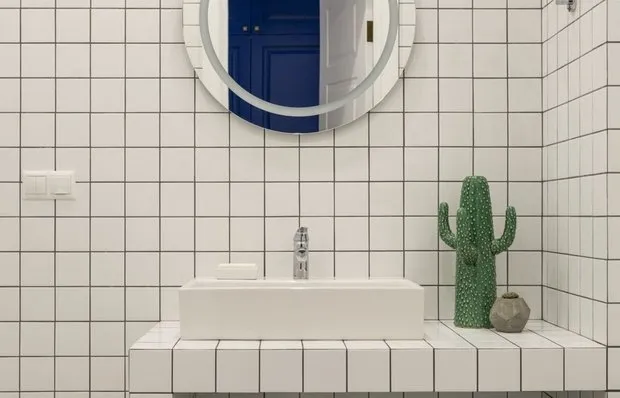 How to Quickly Clean Tile: Secrets You Didn't Know
How to Quickly Clean Tile: Secrets You Didn't Know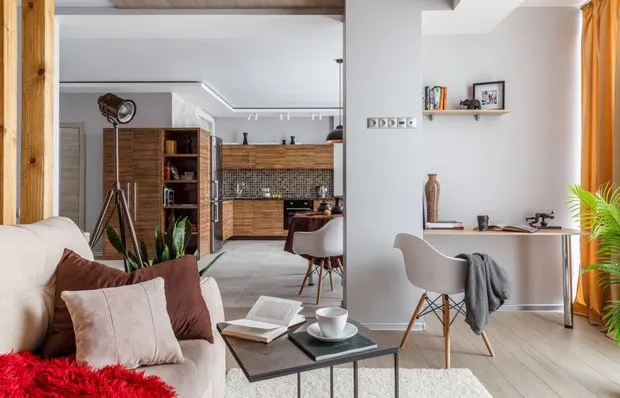 6 Things That Should Be in Every Modern Home
6 Things That Should Be in Every Modern Home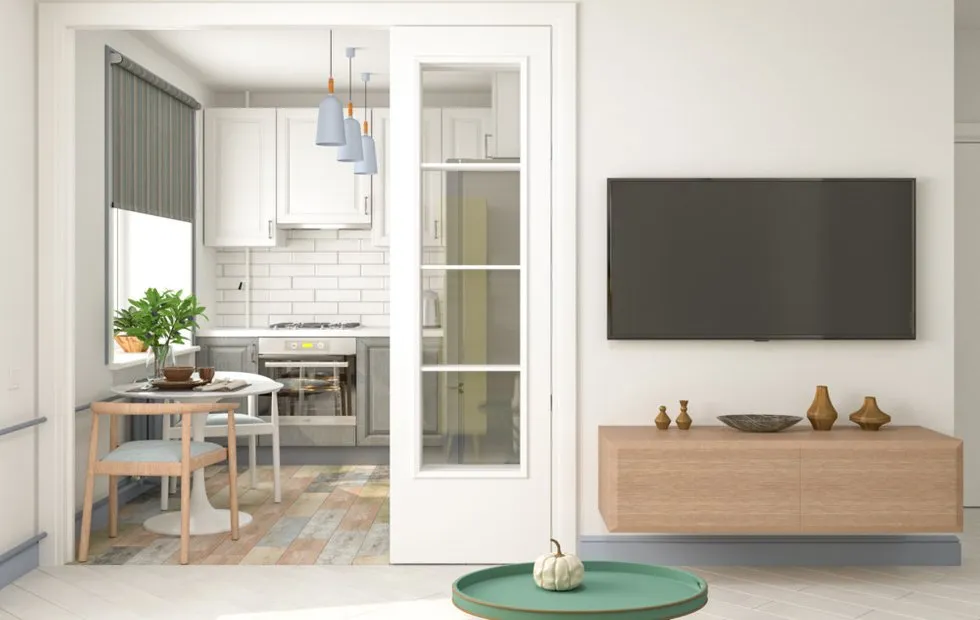 Redesigning a Small Stalin-era Apartment: How It Was Done
Redesigning a Small Stalin-era Apartment: How It Was Done How to Save Time on Cleaning: Tips from Professionals
How to Save Time on Cleaning: Tips from Professionals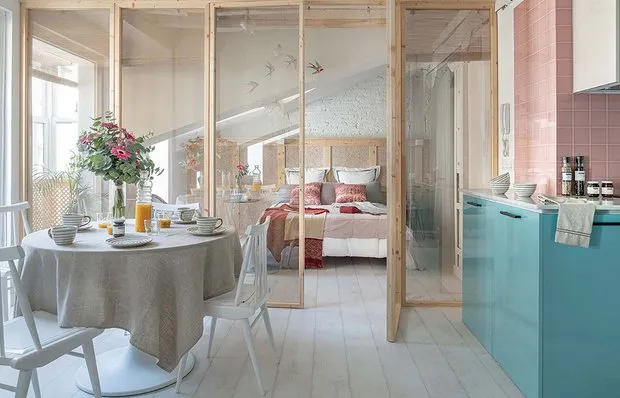 How an Old Attic Was Transformed into a Studio-Mansion for a Girl
How an Old Attic Was Transformed into a Studio-Mansion for a Girl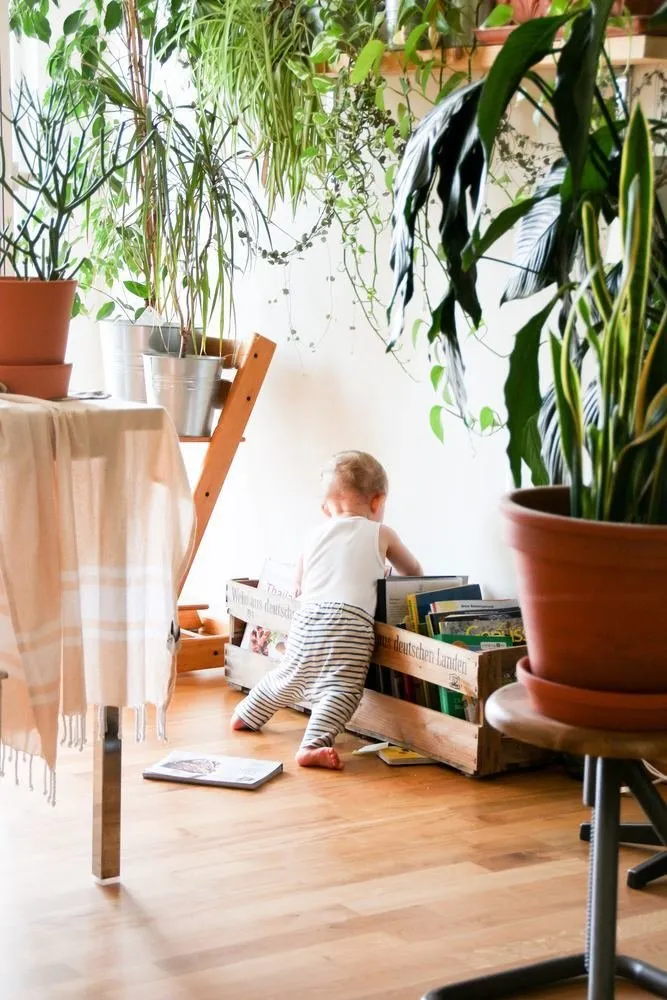 Save to Bookmarks: A Cleaning Guide That Saves Energy
Save to Bookmarks: A Cleaning Guide That Saves Energy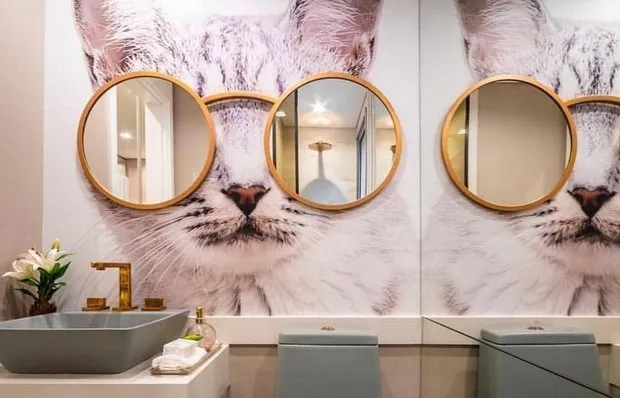 Repairing the Bathroom: 8 Design Hacks in 5 Minutes
Repairing the Bathroom: 8 Design Hacks in 5 Minutes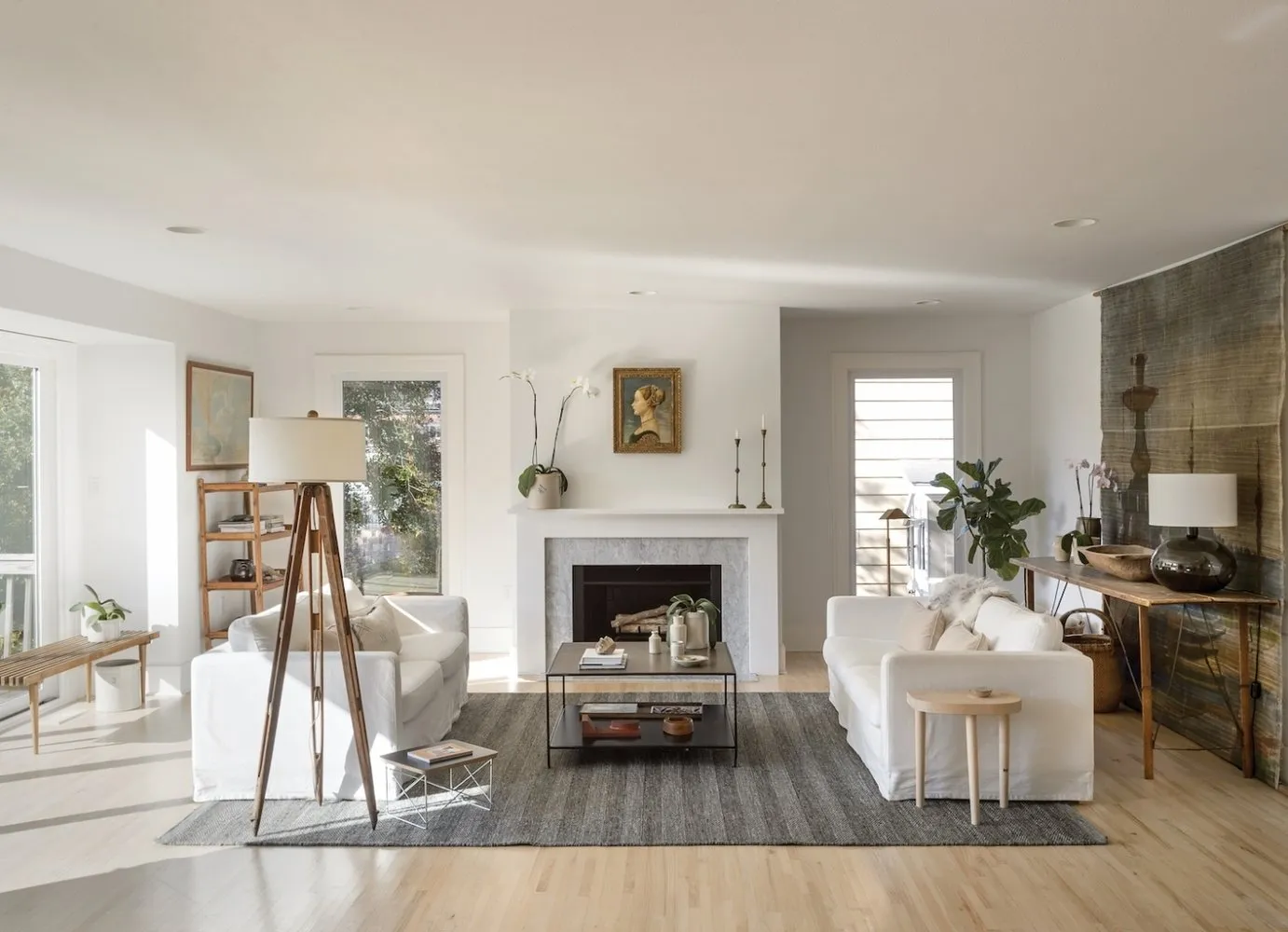 Before and After: How We Transformed a 1940s House Without a Designer
Before and After: How We Transformed a 1940s House Without a Designer